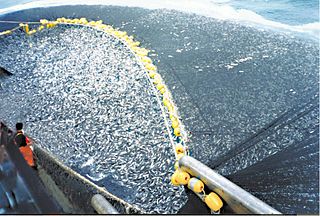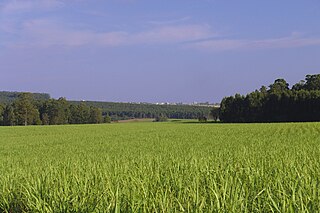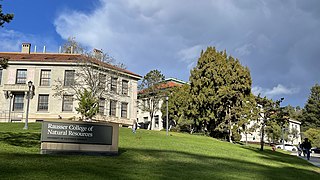
Biotechnology is the integration of natural sciences and engineering sciences in order to achieve the application of organisms, cells, parts thereof and molecular analogues for products and services. The term biotechnology was first used by Károly Ereky in 1919, meaning the production of products from raw materials with the aid of living organisms. The core principle of biotechnology involves harnessing biological systems and organisms, such as bacteria, yeast, and plants, to perform specific tasks or produce valuable substances. Key techniques include genetic engineering, tissue culture, and fermentation. Biotechnology has led to the development of essential products like life-saving drugs, biofuels, genetically modified crops, and innovative materials.

A renewable resource is a natural resource which will replenish to replace the portion depleted by usage and consumption, either through natural reproduction or other recurring processes in a finite amount of time in a human time scale. When the recovery rate of resources is unlikely to ever exceed a human time scale, these are called perpetual resources. Renewable resources are a part of Earth's natural environment and the largest components of its ecosphere. A positive life-cycle assessment is a key indicator of a resource's sustainability.

Energy development is the field of activities focused on obtaining sources of energy from natural resources. These activities include production of renewable, nuclear, and fossil fuel derived sources of energy, and for the recovery and reuse of energy that would otherwise be wasted. Energy conservation and efficiency measures reduce the demand for energy development, and can have benefits to society with improvements to environmental issues.
An environmental factor, ecological factor or eco factor is any factor, abiotic or biotic, that influences living organisms. Abiotic factors include ambient temperature, amount of sunlight, and pH of the water soil in which an organism lives. Biotic factors would include the availability of food organisms and the presence of biological specificity, competitors, predators, and parasites.
Agribusiness is the industry, enterprises, and the field of study of value chains in agriculture and in the bio-economy, in which case it is also called bio-business or bio-enterprise. The primary goal of agribusiness is to maximize profit while satisfying the needs of consumers for products related to natural resources such as biotechnology, farms, food, forestry, fisheries, fuel, and fiber.

Bioenergy is energy made from biomass, which consists of recently living organisms, mainly plants. Types of biomass commonly used for bioenergy include wood, food crops such as corn, energy crops and waste from forests, yards, or farms. The IPCC defines bioenergy as a renewable form of energy. Bioenergy can either mitigate or increase greenhouse gas emissions. There is also agreement that local environmental impacts can be problematic.

The Soil Science Society of America (SSSA), is the largest soil-specific society in the United States. It was formed in 1936 from the merger of the Soils Section of the American Society of Agronomy and the American Soil Survey Association. The Soils Section of ASA became the official Americas section of the International Union of Soil Sciences in 1934, a notable role which SSSA continues to fulfill.

The Rausser College of Natural Resources (CNR), or Rausser College, is the oldest college at the University of California, Berkeley and in the University of California system. Established in 1868 as the College of Agriculture under the federal Morrill Land-Grant Acts, CNR is the first state-run agricultural experiment station. The college is home to four internationally top-ranked academic departments: Agriculture and Resource Economics; Environmental Science, Policy, and Management; Nutritional Sciences and Toxicology; and Plant and Microbial Biology, and one interdisciplinary program, Energy and Resources Group. Since February 2020, it is named after former dean and distinguished professor emeritus Gordon Rausser after his landmark $50 million naming gift to the college.
Biofuelwatch is a non-governmental environmental organization based in the United Kingdom and the United States, which works to raise awareness of the negative impacts of industrial biofuels and bioenergy. It opposes the expansion of industrial monocultures driven by demand for bioenergy, and instead advocates for food sovereignty, agroecological farming practices, ecosystem and biodiversity protection and human rights.

IPB University is a state-run agricultural university based in the regency of Bogor, Indonesia.
This page is an index of sustainability articles.
There are various social, economic, environmental and technical issues with biofuel production and use, which have been discussed in the popular media and scientific journals. These include: the effect of moderating oil prices, the "food vs fuel" debate, poverty reduction potential, carbon emissions levels, sustainable biofuel production, deforestation and soil erosion, loss of biodiversity, effect on water resources, the possible modifications necessary to run the engine on biofuel, as well as energy balance and efficiency. The International Resource Panel, which provides independent scientific assessments and expert advice on a variety of resource-related themes, assessed the issues relating to biofuel use in its first report Towards sustainable production and use of resources: Assessing Biofuels. In it, it outlined the wider and interrelated factors that need to be considered when deciding on the relative merits of pursuing one biofuel over another. It concluded that not all biofuels perform equally in terms of their effect on climate, energy security and ecosystems, and suggested that environmental and social effects need to be assessed throughout the entire life-cycle.

The Center for Biotechnology, Law and Ethics is a bioethics, biotechnology, and biotechnology law research center of Cumberland School of Law located on the Samford University campus in Birmingham, Alabama. It is one of the few research centers of its kind at a United States law school, and, in conjunction with the Cumberland Law Review, the Center publishes an annual journal of scholarly works, which circulates in the United States and foreign countries.

A low-carbon fuel standard (LCFS) is an emissions trading rule designed to reduce the average carbon intensity of transportation fuels in a given jurisdiction, as compared to conventional petroleum fuels, such as gasoline and diesel. The most common methods for reducing transportation carbon emissions are supplying electricity to electric vehicles, supplying hydrogen fuel to fuel cell vehicles and blending biofuels, such as ethanol, biodiesel, renewable diesel, and renewable natural gas into fossil fuels. The main purpose of a low-carbon fuel standard is to decrease carbon dioxide emissions associated with vehicles powered by various types of internal combustion engines while also considering the entire life cycle, in order to reduce the carbon footprint of transportation.

The indirect land use change impacts of biofuels, also known as ILUC or iLUC, relates to the unintended consequence of releasing more carbon emissions due to land-use changes around the world induced by the expansion of croplands for ethanol or biodiesel production in response to the increased global demand for biofuels.
The water, energy and food security nexus according to the Food And Agriculture Organisation of the United Nations (FAO), means that water security, energy security and food security are very much linked to one another, meaning that the actions in any one particular area often can have effects in one or both of the other areas.

Federal University of Technology Minna (FUTMINNA) is a Federal Government owned University located in Minna, Nigeria.

David Zilberman is an Israeli-American agricultural economist, professor and Robinson Chair in the Department of Agricultural and Resource Economics at the University of California, Berkeley. Zilberman has been a professor in the Agricultural and Resource Economics Department at UC Berkeley since 1979. His research has covered a range of fields including the economics of production technology and risk in agriculture, agricultural and environmental policy, marketing and more recently the economics of climate change, biofuel and biotechnology. He won the 2019 Wolf Prize in Agriculture, was the President of the Agricultural and Applied Economics Association (AAEA), and is a Fellow of the AAEA and Association of Environmental and Resource Economics. David is an avid blogger on the Berkeley Blog and a life-long Golden State Warriors fan.

International Center for Biosaline Agriculture (ICBA) is an international, not-for-profit applied agricultural research center with a unique focus on marginal environments. It identifies, tests and introduces resource-efficient, climate-smart crops and technologies that are best suited to different regions affected by salinity, water scarcity and drought. Through its work, ICBA aims to improve food security, nutrition and livelihoods of resource-poor farming communities around the world.
The Lilongwe University of Agriculture and Natural Resources (LUANAR) is a university outside Lilongwe, Malawi. It was formed in 2011 by a merger between Bunda College of Agriculture of the University of Malawi and Natural Resources College (NRC).












